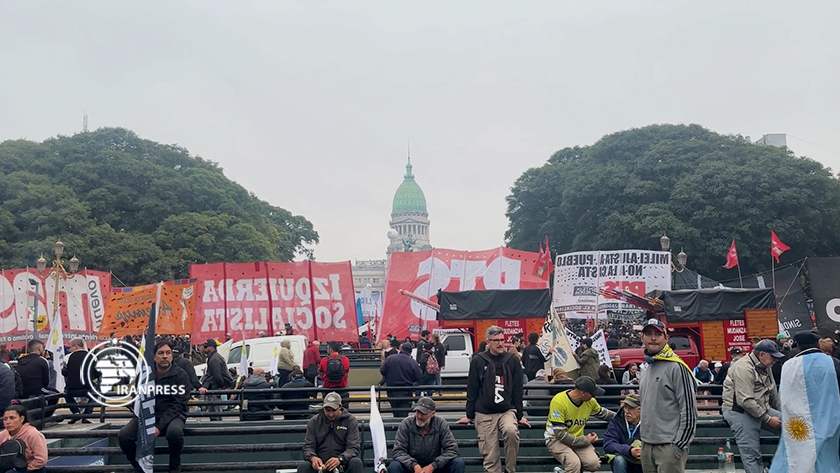In a remarkable display of civic engagement, Buenos Aires teemed with protestors from an array of social organizations, human rights groups, neighborhood assemblies, and unions on Wednesday, June 12. Starting at 9 a.m., vast crowds assembled to manifest their robust dissent against the controversial Bases Law. The legislative proposal, championed by Argentina’s President, Javier Milei, provoked widespread opposition among Argentinians.
The scene of the demonstration was the surroundings of the National Congress, inciting an unnerving atmosphere of volatility that amplified throughout the afternoon into the twilight hours. Thousands convened in spirited opposition to the law, which critics believe undermines Argentina’s socio-economic structure.
Maintaining order amidst escalating turbulence, the Buenos Aires police resorted to forceful measures. Water cannons and tear gas were deployed to quell the rising tide of violent protests, occasioned by the Senate’s close approval of President Milei’s austere set of measures.
This public outpouring bore a human cost. Street-side medics attended to scores of injured protestors, while police reported twenty officers being injured in the clashes. Of notable concern, at least five opposition lawmakers claimed to have been hospitalized in the aftermath of being pepper-sprayed by police officers.
The contentious law under scrutiny proposes a radical revamp of the State’s structure, entailing the potential privatization of state-owned companies, simplification of the State, and assurance of Judicial Independence—a bold attempt to reset the Argentine economy’s machinery. Critics, however, view the proposal as hazardous to the nation’s sociopolitical fabric.
As Raul Vazquez, representative of Customs Broker workers, ardently articulated, this measure could jeopardize the job security of twenty to thirty thousand workers and dismantle labour laws. Roberto Álvarez, a member of the AEFIP national executive committee, a labour union of AFIP, echoed this sentiment, expressing concerns that the law unjustly burdens Argentina’s working class.
Subsequent to passionate debate and dissension, the vote concluded at a tie, 36 to 36, only to be decided by Vice President Victoria Villarruel. However, uncertainty hangs heavy as rumours speculate about potential adjustments to the bill’s extensive articles, such as the reinstatement of the income tax, among others.
Despite the tumultuous standoff in the Senate, any modifications must be readdressed by the House of Deputies. There is potential for the ruling party to uphold the proposal’s original version, casting a shadow of uncertainty over the nation’s socio-political landscape. This event underscores the passionate democratic spirit suffusing Argentina and reflects a nation ready to take a stand to protect its citizens’ rights.
